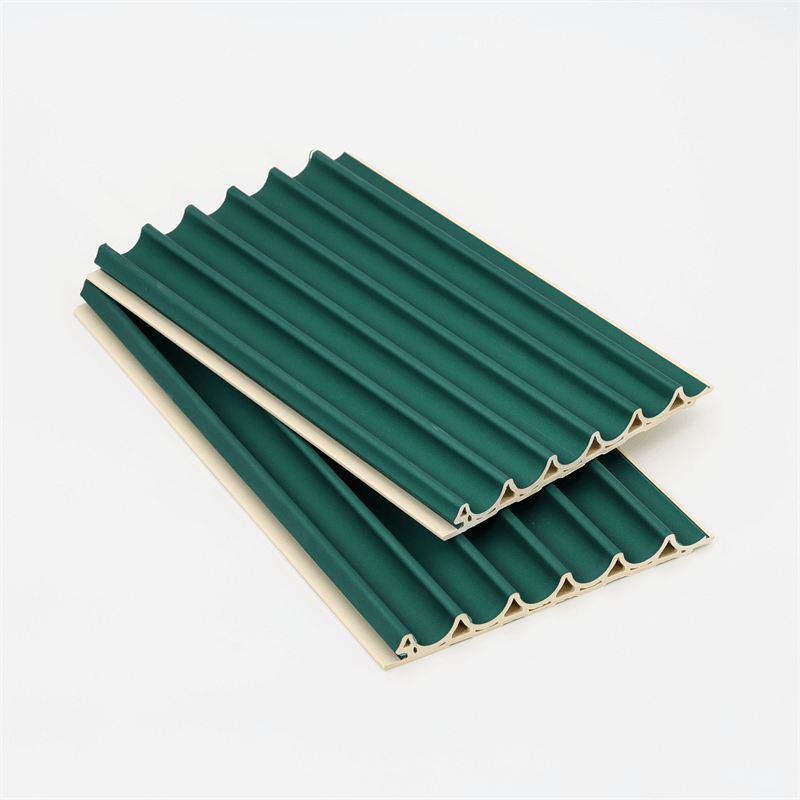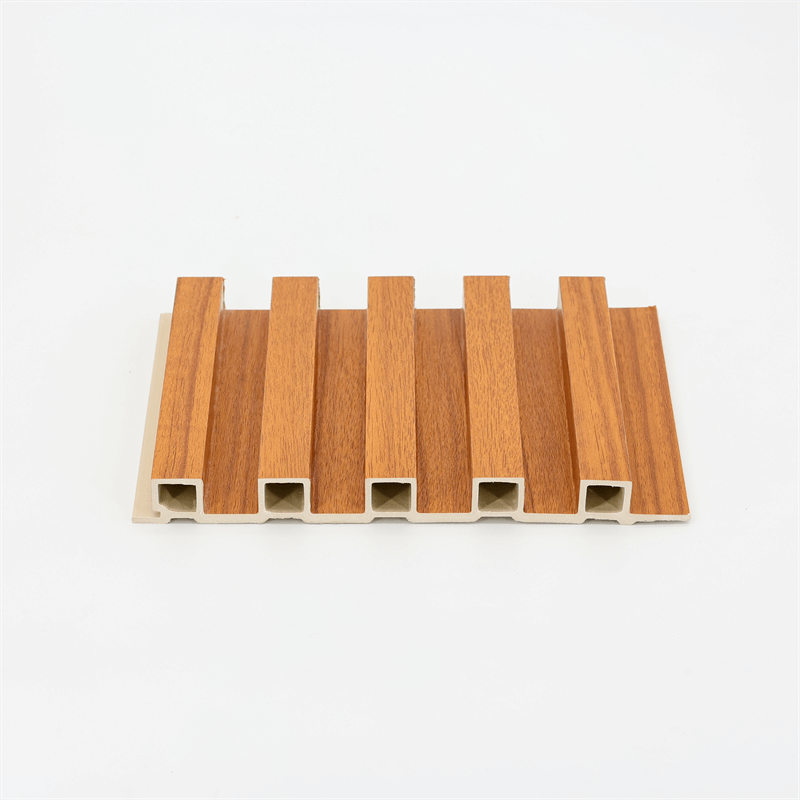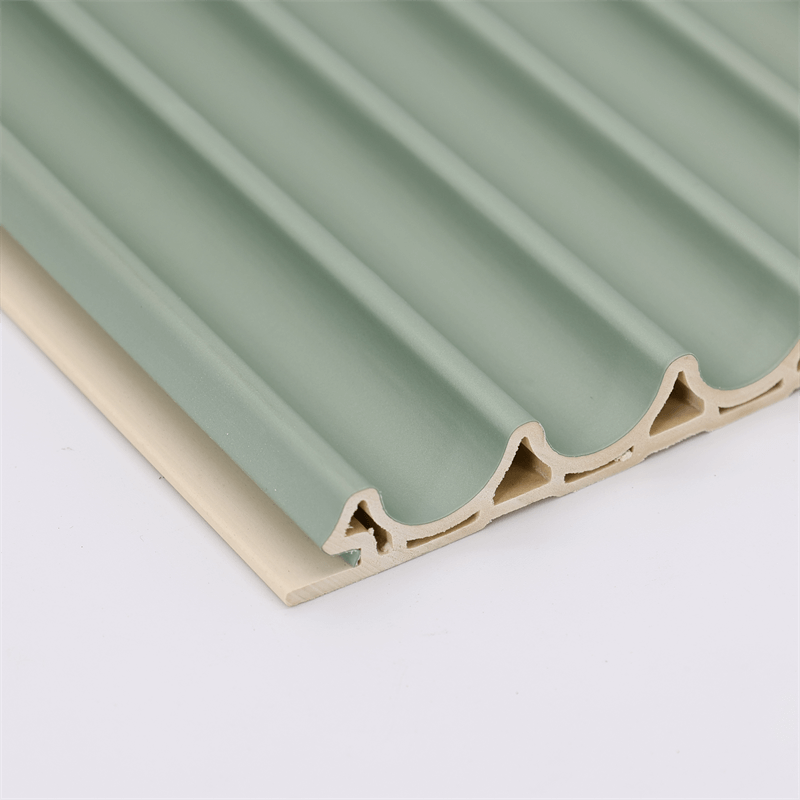In construction, durability and weather resistance are critical factors that determine the longevity and performance of building materials.
Wood-Plastic Composite (WPC) wall panels have gained popularity in recent years due to their exceptional weather resistance and durability.
This essay explores the benefits of WPC wall panels in terms of their ability to withstand various weather conditions, their resistance to rot and decay, their dimensional stability, and their overall durability.
I. Weather Resistance:Withstanding the Elements
WPC wall panels are renowned for their remarkable weather resistance, making them a reliable choice for exterior applications.
This section discusses the advantages of WPC panels in weather resistance:
- Moisture Resistance: WPC panels exhibit excellent moisture resistance, making them highly suitable for humid and rainy climates. Unlike traditional wood, WPC panels do not absorb moisture, preventing issues such as warping, swelling, or rotting. This moisture resistance ensures the long-term structural integrity and aesthetics of the panels, even in wet conditions.
- UV Resistance: WPC panels are formulated with UV stabilizers, protecting them from the harmful effects of sunlight exposure. These stabilizers prevent fading, discoloration, and degradation of the panels, allowing them to retain their original appearance and structural integrity over time. The UV resistance of WPC panels makes them ideal for exterior applications in regions with intense sunlight.
- Thermal Expansion and Contraction: WPC panels are designed to withstand the thermal stresses caused by temperature fluctuations. Their composition and structural design minimize the risk of excessive expansion or contraction due to changes in temperature. This dimensional stability ensures that the panels maintain their shape and integrity, even in extreme weather conditions.
II. Resistance to Rot, Decay, and Insects
One of the key advantages of WPC wall panels is their inherent resistance to rot, decay, and insect infestations. This section explores the benefits of WPC panels in terms of their durability and resistance to biological threats:
- Rot Resistance: Unlike natural wood, WPC panels do not rot or decay when exposed to moisture or damp environments. The absence of organic material in WPC panels prevents the growth of fungi, bacteria, and other microorganisms that cause rotting. This rot resistance ensures the long-term durability and structural integrity of the panels.
- Decay Resistance: WPC panels are highly resistant to decay, even in environments with high humidity or moisture content. The combination of wood fibers and polymer matrix in WPC panels creates a material that is inhospitable to decay-causing organisms. This resistance to decay prevents the deterioration and weakening of the panels over time.
- Insect Resistance: WPC panels are also resistant to insect infestations, including termites and wood-boring insects. The absence of organic matter in WPC panels eliminates the food source for these pests, making the panels unappealing and inhospitable. This insect resistance ensures that the panels remain structurally sound and free from damage caused by insect activity.
III. Dimensional Stability and Longevity
WPC wall panels offer exceptional dimensional stability and longevity, making them a reliable choice for long-lasting construction.
This section highlights the advantages of WPC panels in terms of their dimensional stability and longevity:
- Minimal Expansion and Contraction: WPC panels exhibit minimal expansion and contraction, even in fluctuating weather conditions. Their structural design and composition help mitigate the risk of excessive movement due to temperature changes, ensuring that the panels maintain their shape and integrity over time. This dimensional stability reduces the need for frequent maintenance and repairs.
- Longevity: The durability of WPC panels translates into their long service life. Unlike natural wood, WPC panels do not deteriorate, crack, or split easily. They can withstand the test of time and retain their functionality and aesthetics for many years. This longevity reduces the lifecycle costs associated with maintenance, replacement, and repairs, making WPC panels a cost-effective choice in the long run.
- Low Maintenance Requirements: WPC wall panels are known for their low maintenance requirements. Unlike natural wood, they do not require regular staining, sealing, or painting to maintain their appearance and performance. Occasional cleaning with mild detergent and water is usually sufficient to keep the panels looking their best. This low maintenance aspect saves time, effort, and resources in the upkeep of buildings.
IV. Impact and Scratch Resistance
WPC wall panels possess excellent impact and scratch resistance, ensuring their durability in high-traffic areas or environments prone to physical damage.
This section explores the benefits of WPC panels in terms of their impact and scratch resistance:
- Impact Resistance: WPC panels can withstand impact from external forces, such as accidental collisions or heavy objects. Their robust composition and structural design help distribute and absorb impact energy, preventing damage or deformation. This impact resistance makes WPC panels suitable for areas where durability is paramount, such as commercial buildings or public spaces.
- Scratch Resistance: WPC panels have a surface that is highly resistant to scratches and abrasions. This property ensures that the panels maintain their smooth and attractive appearance, even in areas with high foot traffic or contact with furniture or equipment. The scratch resistance of WPC panels enhances their overall durability and aesthetics.

WPC wall panels offer numerous advantages in terms of weather resistance and durability.
Their ability to withstand various weather conditions, resist rot and decay, exhibit dimensional stability, and withstand impacts and scratches makes them an excellent choice for both interior and exterior applications.
The weather resistance of WPC panels ensures that they can maintain their structural integrity and aesthetics, even in harsh environmental conditions.
Additionally, their resistance to rot, decay, and insects guarantees their longevity and reduces the need for frequent maintenance or replacements.
Architects and builders can confidently select WPC wall panels, knowing that they will provide a durable and long-lasting solution for their construction projects.


